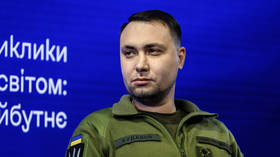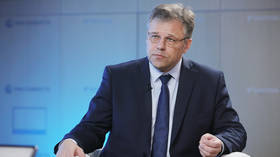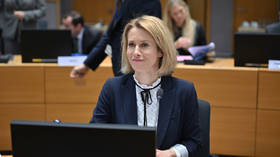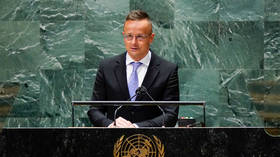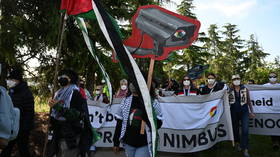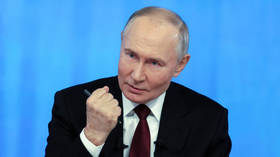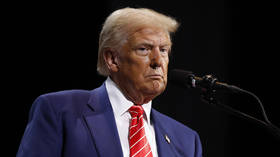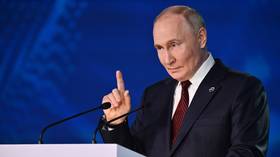24 Jan, 2025 18:33
US-made Abrams tank destroyed in Russia’s Kursk Region (MOD VIDEO)
Moscow’s forces have successfully struck a US-produced M1 Abrams tank operated by the Ukrainian military, the Russian Defense Ministry reported on Friday, releasing a video showing the disabled armor piece. The tank was hit with a kamikaze drone in Russia’s Kursk border region, according to the report.
A short clip released by the ministry shows the tank in an improvised ditch on the side of what appears to be a dirt road. Grey smoke can be seen coming out of its turret. There are no signs of the crew in the video. According to the ministry, the tank was hit near the village of Viktorovka located just a few kilometers from Russia’s border with Ukraine.
US lawmakers previously approved the transfer of 31 stripped down M1 Abrams tanks to Kiev, worth $400 million as part of the Western effort to bolster the Ukrainian army before its 2023 “counteroffensive” against Russian forces. The operation failed to produce any significant gains.
The tank was hit with a Lancet unmanned aerial vehicle (UAV), the ministry said. Also known as loitering munitions, the Lancet drone family are kamikaze UAVs normally deployed by Russian forces against high-value armored targets. Earlier this week, a similar drone was used to destroy a US-made Paladin self-propelled howitzer.
According to the ministry, Kiev’s forces have lost a total of three tanks as well as almost 200 soldiers to the fighting in the Kursk Region over the past 24 hours alone. Other losses suffered by the Ukrainian military in the area over the same period included three armored personnel carriers, five armored combat vehicles, and a US-made M777 howitzer, according to the ministry.
Ukraine launched its incursion into the Kursk Region in early August 2024 in an unsuccessful effort to divert Moscow’s resources from its successful offensive in Donbass. Kiev also claimed it wanted leverage for possible peace talks with Moscow. Russia then stated that, although it had never ruled out negotiations with Ukraine, it could only be possible after all Ukrainian forces had left Russian territory.
Kiev’s forces made some initial progress in the early days of their incursion into the Kursk Region, taking up positions in the border area, but their advance was quickly contained by Moscow’s forces. Last week, the Russian Defense Ministry said that more than 63% of the territories in the region initially occupied by Ukrainian forces have been retaken.
Kiev lost more than 54,000 troops and over 300 tanks since the start of its incursion into the Russian border region, according to the Russian ministry’s data.
